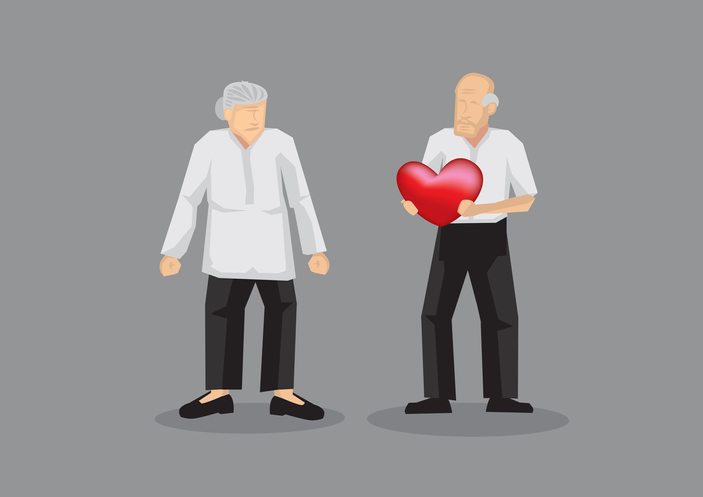
Looking after a spouse with a health condition can be challenging at the best of times, but when your spouse has dementia and you’re both over eighty, things are even more difficult. Research suggests that if you find yourself in that situation, you’re more at risk of developing your own health issues than the average family caregiver. You’re also more likely to start experiencing problems concentrating, remembering, or learning new things.
That doesn’t mean that you’ll necessarily experience these problems. However, the chronic stresses of caregiving along with your age place you at a greater risk.
“You might not be sleeping well,” says Ifah Arbel, an occupational therapist and doctoral candidate at the University of Toronto. “You might not be eating very well. You might not be as active as you would want to be outside of the house.” This all adds up, particularly if you’re already experiencing age-related health issues.
So, what can health care providers and adult children do to better support you? This is one of the questions that Ifah is trying to answer in her doctoral research.
Understanding the special challenges faced by older caregivers
In her clinical practice, Ifah noticed a number of older spousal caregivers struggling because they were experiencing one or more of the following age-related problems:
- Troubles with their eyesight or hearing (which made it difficult for them to talk to doctors or read information, for instance)
- Decreased problem-solving ability (which made it difficult for them to figure out day-to-day caregiving challenges)
- Practical obstacles (e.g. not being able to get to services like support groups because they no longer drove)
- Small social support networks (because many of their old friends weren’t around anymore)
She also noticed that many of these caregivers were reluctant to accept help. Some of them interpreted well-intentioned offers of assistance as a criticism of their ability to care for their spouse. They worried that it meant other people didn’t see them as capable or independent anymore.
Supporting healthy aging
Ifah believes health care providers like herself need to recognize that older caregivers aren’t necessarily the same as other caregivers. When providers begin by acknowledging the special challenges older caregivers face, they can ask more focused questions and suggest better solutions. They can more realistically assess the load an older caregiver can take on. And they can concentrate on supporting that person’s healthy aging.
For instance, a health provider might recommend that the spouse with dementia attend a day program with the intent of giving the caregiving spouse some time to get out of the house. However, that might not be enough. If the caregiving spouse has mobility issues, they might remain at home, isolated. A better way of supporting their healthy aging might be to also arrange for friendly visitors to come into the home or suggest that the caregiving spouse also go to some sort of day program (one that provides transportation).
There’s a certain sensitivity that health care providers need to have as well. “If I offer something that they [the caregiver] don’t want,” Ifah says, “that may affect the rest of my conversation with them. [Particularly] if I imply that they’re no longer capable of caring for their spouse.”
When adult children get involved
When adult children see their parents struggling, they may be quick to step in and take over caregiving responsibilities, unaware of how this might affect their caregiving parent’s sense of self-worth.
“People are exiting a lot of roles at this time of their life,” Ifah says. “What does it mean to exit the caregiving role while they’re exiting all these other roles? We can’t assume that they want to give it up.”
The trick is to figure out how to have these conversations so that everyone is getting the respect they deserve. Often, the best outcome is for an adult child to divide caregiving responsibilities with their parent instead of just taking them over completely. The parent retains aspects of the caregiving role that give them a sense of purpose. Sometimes health care providers can facilitate these conversations.
Understanding the older caregiver’s perspective
As part of her doctoral research, Ifah is interviewing older spousal caregivers. She plans to ask them to what extent their age affects their experience as a caregiver. What are their needs? Are they being met? How can people best support them?
If you’re interested in participating in her study or would just like more information, take a look at her flyer.
You’re also invited to share your comments below.
Related articles and videos:
- Are you a helicopter child to your parents?
- When to make decisions for a relative with dementia… and when not to
- Staying happy, active and connected while looking after someone with dementia
- Looking after someone with dementia (videos)

